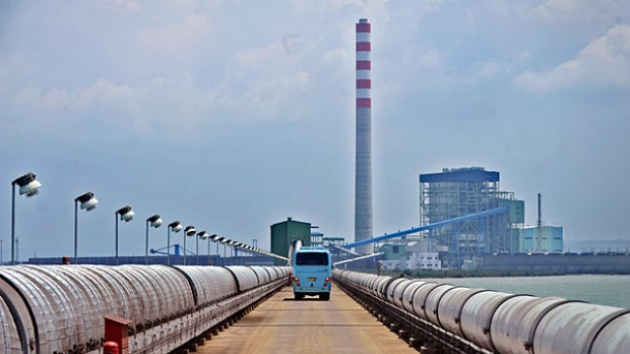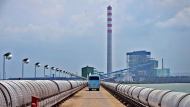Banks risk breach of sustainability standards over Indonesian coal plant finance
For further inquiries and interview requests, please contact:
climate@banktrack.org
Kim Schoppink, Climate and Energy campaigner at Greenpeace Netherlands, kim.schoppink@greenpeace.org, +31 68 1410797

For further inquiries and interview requests, please contact:
climate@banktrack.org
Kim Schoppink, Climate and Energy campaigner at Greenpeace Netherlands, kim.schoppink@greenpeace.org, +31 68 1410797
A planned USD 2 billion coal-fired power plant in Cirebon, Indonesia will have major social and environmental impacts not dealt with by the project sponsor, which should rule out Equator Principles banks from financing this project, finds a new briefing by BankTrack and Greenpeace.
The briefing details the project’s failure to comply with the Equator Principles on various counts, and calls on the consortium of banks considering financing the deal, Credit Agricole, ING (also as financial adviser), Mizuho Financial Group, MUFG and SMBC – all signatories to the Equator Principles – not to finance the 1,000 megawatt Cirebon 2 plant.
Cirebon 2, being developed by Cirebon Energi Prasarana, a consortium consisting of Marubeni (35%), Indika Energy (25%), Samtan (20%), Korea Midland Power (10%) and Chubu Electric (10%), is planned next to an existing coal plant, Cirebon 1, in northern West Java.
The Equator compliance briefing of BankTrack and Greenpeace finds that the project will lead to extensive loss of livelihoods of local farmers and fishermen, due to land seizures and the impacts of thermal pollution. The project will also lead to severe air pollution, directly threatening the health of nearby communities. Communities adjacent to the project were not properly consulted in advance about the potential impact of the project and are now suing the local government in court.
Since Cirebon 1 started firing in 2013, local fishermen, salt makers and farmers have suffered from declining harvests and income because of the air and thermal water pollution caused by the plant. Cirebon 2, proposed for operations right next door, will only worsen their suffering. These damaging impacts have not been sufficiently investigated by the owners of the plant or by the banks in the frame for financing, and local communities have not been properly consulted about the plans for the new plant.
Yann Louvel, climate and energy campaign coordinator at BankTrack said:
“The reputation of the Equator Principles as an adequate safeguard for the legitimate rights and interests of fence line communities has been badly tarnished by the financing of controversial projects like the Dakota Access Pipeline in the US and the Agua Zarca dam in Honduras, both ‘Equator compliant projects’ that nevertheless completely violated such community rights. While the Equator Principles have been severely trampled on in the Cirebon 2 preparation stage, this time the banks have not yet closed the deal, and still have time to step away from this deeply flawed project.”
As described in the new briefing, Cirebon 2 will not make use of several available technologies to reduce the emission of the dangerous air pollutants SO2, NOx and fine particles which result from coal burning. Such technologies are used by the lead Cirebon 2 consortium company Marubeni for coal plants in Japan.
Kim Schoppink, climate and energy campaigner at Greenpeace said:
“This is a shocking double standard and oversight. This new plant would dramatically worsen the air quality in Cirebon, while Cirebon residents are already suffering from air quality considered to be very unhealthy by the World Health Organization.”
Financial close for Cirebon 2 is expected potentially as soon as the end of April. BankTrack and Greenpeace are calling on potential financing banks to respect their commitments under the Equator Principles and pull out of financing for the project.
Notes for editors:
See the briefing on this page and the dodgy deal profile of Cirebon 2 on BankTrack website on this page.
The Equator Principles are a set of risk management guidelines for project finance adopted by 89 commercial banks around the world.
The Air quality guidelines of the World Health Organization can be found on this page.
See this article.

